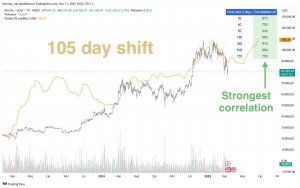The 5 Types of Power in Business
The five-type leader power framework can help you better understand your organization’s power landscape and ultimately help you better influence outcomes for the better.

Any MBA will tell you these days that there are five types of leader power: Legitimate, Reward, Coercive, Expert, Referent.
The first three are considered ‘positional’ in that they stem from the individual’s formal position in the company, and the last two are ‘personal’ in that they stem from the individual’s informal characteristics such as personality (Daft, 2008). The effective leader will do well to understand each and use them where appropriate.
The five-type leader power framework can help you better understand your organization’s power landscape and ultimately help you better influence outcomes for the better.
Legitimate Power is the authority that a person has explicitly because of his position. It is clear to pretty much everyone in an organization who has this power and what it entails. Followers typically comply with their superiors when it comes to most decision-making, directions, and goal-setting.
Reward and Coercive Powers are most often coupled with Legitimate Power in that superiors who have Legitimate authority also have the ability to levy rewards and punishments. In many organizations, however, there are other roles with Reward and Coercive Powers such as those in Human Resources and Employee Relations. Similar to Legitimate Power, followers tend to have no problem complying with those with Reward and Coercive Powers as long as the reward or punishment is aligned with an accepted rule or well-understood policy.
Personal powers include Expert and Referent Powers. Expert Power is leverage gained by an individual due to superior knowledge on a given work-related subject matter (Daft, 2008). This is often coupled with Legitimate Power, but often a person without Legitimate Power can exert influence if he demonstrates expertise.
Referent Power is a person’s likability and is the form of power that is least related to the work at hand, but still relevant because it is a source of influence within an organization. Likability goes a long way in building relationships and can be a sizable factor in expressing one’s emotional intelligence.
In leadership, the use of power is essential to get things done. It is also risky because it involves persuading people to do things they might not be comfortable with. Harry Truman once said leadership is the ability to get people to do what they don’t want to do and like it (Daft, 2008). It is thus necessary for a leader to use his power only in ways that are ethical.
The best way to ensure purely ethic use of power is to completely forget self-interest and to view one’s action from an objective view—from that of one’s team, the organization as a whole, and the greater society. With that frame of mind, it is possible to use all five kinds of power ethically.
References
Daft, R. L. (2008). The leadership experience. (4th Ed.). Mason, OH: Thomson South-Western. ISBN13: 9780324539684







